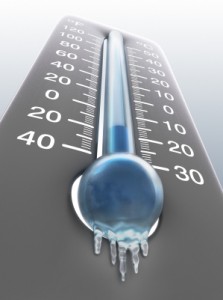
 Winter is almost here and if we see the weather they are predicting in North Texas, keeping our homes warm will be a top priority this winter. Even when the mercury doesn't drop below 50, knowing your home is not losing energy is a relief when you spend your hard earned dollars keeping your home warm or cool.
Winter is almost here and if we see the weather they are predicting in North Texas, keeping our homes warm will be a top priority this winter. Even when the mercury doesn't drop below 50, knowing your home is not losing energy is a relief when you spend your hard earned dollars keeping your home warm or cool.
Saving energy in your home is not a difficult process. There are many easy free and low-cost ways to save energy and money on your heating and cooling bills. A few simple ideas below are some steps you can take in your home to help conserve energy and save yourself some money this winter:
Install A Programmable Thermostat:
Heating and cooling your home uses more energy and costs you more money than any other area or system in your home. Heating and cooling makes up almost half of your utility bill, so knowing how to eliminate energy waste when it comes to heating and cooling will save you money each month. By installing a programmable thermostat you help to automatically adjust your home's temperature to when you've programmed, which helps it stay warm (or cool) when you need it to be. You may also want to look into installing a Nest Learning Thermometer. You can turn it up. You can turn it down. The Nest thermostat learns your schedule and the temperatures you like. It keeps you comfortable and saves energy when you're away.
Seal Air Leaks:
A home is rarely air tight, and checking for air leaks is a great way of determining where warm or cool air could be escaping and adding money on to your energy bill. There are a number of areas where air escapes: windows, doors, electrical boxes, ceiling fixtures, attics and more. You can help reduce or eliminate leaks by caulking and/or weather-stripping doors and windows, installing foam gaskets behind outlets and switch plates, or using foam sealant on larger gaps around windows and baseboards. Taking the time to find air leaks and fix them will help save you money and keep your home warm or cool.
Conserve Water:
Using less water benefits you, your water bill and the environment. When you use less water, you also use less energy needed to heat the water. The Department of Energy lists water heating as the third most energy consuming function in a home. To help conserve water, you can take shorter showers and be conscious of the water used when washing dishes, food and clothes. When running the dishwasher or the washing machine, make sure the machine is filled to capacity to save water and energy on extra washes. You can also save energy by lowering the temperature on your hot water heater. The Department of Energy says 120 degrees is sufficient for most household uses. You can also look at installing a Tankless Water Heater. By operating only when hot water is needed, and no storage tank to heat and reheat water, tankless technology helps save on energy and utility costs. The use of an electronic ignition means no standing pilot light that constantly uses energy.
Turn Off Electronic Devices:
Do you leave your coffee maker plugged in when not using it? According to the US Department of Energy, "In an average home, 75 perfect of the electricity used to power home electronics is consumed while the products are turned off." This is called a "phantom load," or the energy appliances or electronics use when not turned on. You can minimize phantom loads and save on your energy bill by unplugging appliances and electronics when not in use, or plugging them into a power strip and turning the strip off when not using the appliances or electronics. Also consider using outlet covers (yes, the same you use for kids). They aren’t just for keeping kids safe, but for saving money and energy too.
Change out Light Bulbs:
One cost-effective technique for saving energy and money is replacing the traditional incandescent light bulbs in your home. There are a number of options available that will help you save energy, and some offer longer life and greater savings than others. From halogen incandescent bulbs, to compact fluorescent lamps (CFLs), to light-emitting diodes (LEDs), each bulb has its benefits. Halogen incandescent bulbs are energy-efficient incandescent bulbs and can last up to three times longer than traditional incandescent bulbs. CFLs last up to 10 times longer than traditional incandescent bulbs and are extremely affordable. LEDs are becoming more and more popular and their prices have significantly dropped in recent years. LEDs use 20%-25% of the energy traditional incandescent bulbs use, and LEDS can last up to 25 times longer, some even being touted to last up to 25 years.
You also have the option of performing a home energy audit. An energy audit, also known as a home energy assessment, assesses how much energy your home consumes and helps you evaluate the best measures you can take to make your home more energy efficient. There are a number of options for home energy audits, from Do-It-Yourself audits, to professional audits that include blower door tests, thermographic inspections and PFT air infiltration measurements. If you need a referral for a professional home energy audit, call 3G Properties and we can help you find the best company to come out to your home.




